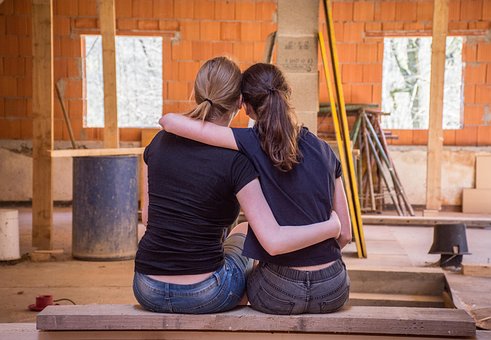
The truth is, renovating a house comes with numerous benefits over buying a house that is ready to move in. Not only does it allow you to buy a home that has a lot of unique features, but it can also give you a significant return on your investment. As long as you put in the work, you should be able to find a great deal.
The biggest downside is that you need to do your research and due diligence. If you don’t plan for your purchase properly, you could find yourself buying a home that turns into a money pit.
How To Figure Out The Renovation Potential Of a House:
If you are looking to figure out whether or not a home is worth buying to renovate, you will want to consider the following when viewing properties.
- What’s the potential for renovations?
- Does the home have enough space to build an extension? Does it have room on the sides or in the front? Can you convert the attic into a loft? Does it have a basement or even a garage?
- Look at the other houses in the neighbourhood. Factor in whether or not they’ve managed to get permission for the renovations you are looking at.
- How much of the renovations are going to be surface level or structural?
What are the most expensive homes in the area? You need to look to see the price tier that renovations could put your home in to figure out if it’s worth doing.
Before purchasing any home that you plan on renovating, you want to be aware of all of the costs that have to be included in your decision, big costs such as secondary glazed windows will be a considerable amount in your budget.
Reconnection Fees
You might have to end up reconnecting your water supply. If there was one, you might have it disconnected. Also, you will need to connect electricity if you are going to be living on the site during renovations or if you are going to be using power tools.
- Valuation fees that are associated with getting your property appraised.
- Council tax
Professional fees: these will include everything from getting building regulation approval to getting surveys, engineer reports, and more. You need to factor in all of the fees from hiring experts into your renovation budget.
Contingency Fund
You need to have extra cash on hand to effectively deal with anything unexpected that can crop up. You want to have this on hand because you will have unexpected expenses during any home renovation project.
Legal Costs
You need to factor in all of the legal costs associated with renovating your home. You can anticipate paying anywhere from £500-2,000 when hiring a solicitor to act on behalf of you.
If you are looking to purchase a home meant for renovations, you will find that a chartered surveyor can help. They will be able to flag any prospective issues that could crop up that would have an impact on the sale. You can arrange to have this survey done before even laying down an offer for it if the homeowner agrees to it. However, it’s typically done after the offer’s been accepted.
From there, the surveyor will do a comprehensive building report where they will highlight all of the different concerns they might have. This will give you a list of estimated repairs that you will need to make including what they are going to cost you. From there, you can use the report to figure out whether or not you should be proceeding with the house purchase. You may be able to renegotiate the purchase agreement if you find things you don’t like.
A chartered surveyor will give you specific recommendations for more investigations if they detect:
- Dampness
- Drainage issues
- Subsidence
A report will reveal the construction methods that were used during the building of the house. This could vary depending on whether or not the home has been extended. The information can then be used during the renovation of certain materials that would be more appropriate.
Keep in mind, the majority of structural issues will have an optimal solution. While it might mean you have to boost your budget, by finding them early on, you can make better plans.